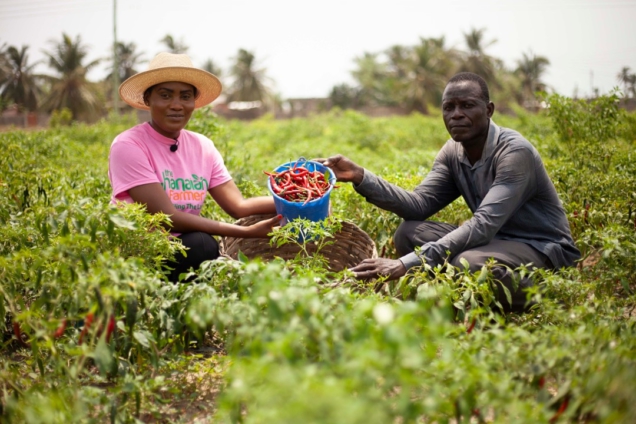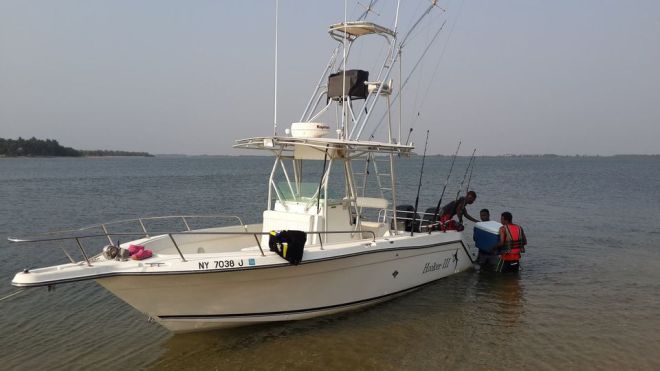Currently Empty: $ 0.00
Economy
The economy of Ada, Ghana is largely driven by agriculture, fishing, and tourism. Located in the Greater Accra Region, Ada is known for its rich fertile soil, making it an ideal place for farming and crop production. The main crops grown in the area include maize, cassava, yams, and vegetables.



Fishing is another significant contributor to the local economy, with the Volta River and Ada Estuary providing an abundance of fish and other seafood. Many residents engage in small-scale fishing, supplying the local market and nearby cities.



Tourism is also a growing sector in Ada’s economy, thanks to its natural attractions and cultural heritage. Visitors are drawn to the area’s scenic beauty, including the Volta River, estuary, and surrounding islands. The Ada Foah Castle, a historic slave fort, is a popular tourist destination, offering insights into the region’s rich history and cultural significance.






In addition to these main industries, small-scale entrepreneurship and trading are common in Ada. Local markets offer a variety of goods, including fresh produce, handicrafts, and traditional clothing.



However, despite its economic potential, Ada faces challenges such as:
- Limited access to credit and financial services for small-scale farmers and entrepreneurs
- Inadequate infrastructure, including roads and storage facilities
- Climate change and environmental degradation affecting agricultural productivity and fishing yields
- Limited job opportunities and brain drain among the youth
To address these challenges, initiatives such as:
- Agricultural extension services and training programs
- Microfinance schemes and financial inclusion programs
- Investment in infrastructure development (roads, storage facilities, and markets)
- Environmental conservation and sustainability projects
- Youth empowerment and entrepreneurship programs
can help unlock the full economic potential of Ada, Ghana, and improve the livelihoods of its residents.
Harvesting White Gold: Salt Mining in the Songor Lagoon is also a veritable economic activity. The Songor Lagoon, is a vast, shallow lagoon that stretches along the Atlantic coast. For centuries, this natural wonder has been a hub of economic activity, with salt mining being a primary source of livelihood for the local communities. The lagoon’s unique geography and climate make it an ideal location for salt production, earning it the nickname “white gold.”
Salt mining in the Songor Lagoon is a labor-intensive process that requires skill, patience, and dedication. The process begins with the identification of suitable salt pans, shallow pools of seawater that are left behind by the receding tide. These pans are then dug out and prepared for salt harvesting.
The salt miners, mostly local residents, use traditional methods to extract the salt. They pour seawater into the prepared pans and allow it to evaporate under the scorching sun. As the water evaporates, the salt concentration increases, and the miners carefully rake the salt crystals into heaps.
The harvested salt is then transported to storage facilities, where it is packaged and sold to markets across Ghana and beyond. The salt from the Songor Lagoon is renowned for its high quality and distinct flavor, making it a sought-after commodity.


Salt mining in the Songor Lagoon has a significant impact on the local economy, providing employment opportunities for thousands of people. The industry also supports local businesses, such as food vendors, transport operators, and suppliers of mining equipment.
However, salt mining in the lagoon faces challenges, including:
- Climate change and rising sea levels, which threaten the lagoon’s ecosystem and salt production
- Limited access to modern technology and equipment, making the mining process labor-intensive and inefficient
- Competition from imported salt, which can undercut local prices and affect demand
Despite these challenges, the salt miners of the Songor Lagoon remain resilient and determined to preserve their traditional livelihood. Efforts are being made to introduce sustainable mining practices, improve access to technology, and promote local salt production.


